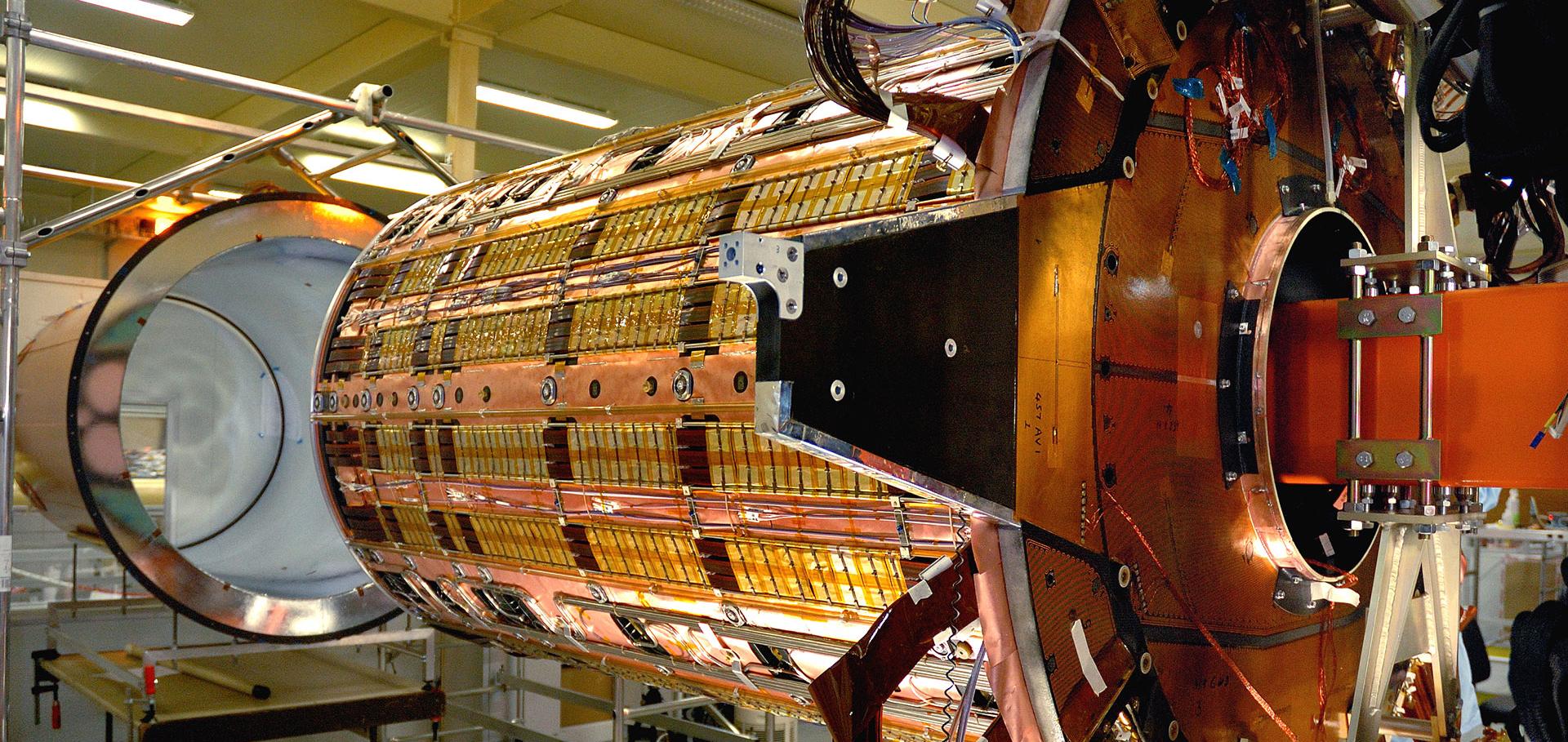Measurement of J/psi and psi(2S) polarization in pp collisions at sqrt[s] = 1.8 TeV.
Phys Rev Lett 85:14 (2000) 2886-2891
Abstract:
We have measured the polarization of J/psi and psi(2S) mesons produced in pp collisions at sqrt[s] = 1.8 TeV, using data collected at the Collider Detector at Fermilab during 1992-1995. The polarization of promptly produced J/psi [psi(2S)] mesons is isolated from those produced in B-hadron decay, and measured over the kinematic range 4 [5.5]Angular and current-target correlations in deep inelastic scattering at HERA
European Physical Journal C 12:1 (2000) 53-68
Abstract:
Correlations between charged particles in deep inelastic e+ p scattering have been studied in the Breit frame with the ZEUS detector at HERA using an integrated luminosity of 6.4pb-1. Short-range correlations are analysed in terms of the angular separation between current-region particles within a cone centred around the virtual photon axis. Long-range correlations between the current and target regions have also been measured. The data support predictions for the scaling behaviour of the angular correlations at high Q2 and for anti-correlations between the current and target regions over a large range in Q2 and in the Bjorken scaling variable x. Analytic QCD calculations and Monte Carlo models correctly describe the trends of the data at high Q2, but show quantitative discrepancies. The data show differences between the correlations in deep inelastic scattering and e+e- annihilation.Measurement of D*± production and the charm contribution to F2 in deep inelastic scattering at HERA
European Physical Journal C 12:1 (2000) 35-52
Abstract:
The production of D*± (2010) mesons in deep inelastic scattering has been measured in the ZEUS detector at HERA using an integrated luminosity of 37 pb-1. The decay channels D*+ → D0π+ (+c.c.), with D0 → K-π+ or D0 → K-π-π+π+, have been used to identify the D mesons. The e+p cross section for inclusive D*± production with 1 < Q2 < 600 GeV2 and 0.02 < y < 0.7 is 8.31±0.31(stat.)+0.30Measurement of high-Q2 charged-current e+p deep inelastic scattering cross sections at HERA
European Physical Journal C 12:3 (2000) 411-428
Abstract:
The e+p charged-current deep inelastic scattering cross sections, dσ/dQ2 for Q2 between 200 and 60000 GeV2, and dσ/dx and dσ/dy for Q2 > 200 GeV2, have been measured with the ZEUS detector at HERA. A data sample of 47.7 pb-1, collected at a center-of-mass energy of 300 GeV, has been used. The double-differential cross-section dσ/dQ2 falls by a factor of about 50000 as Q2 increases from 280 to 30000 GeV2. The double differential cross section d2σ/dxdQ2 has also been measured. A comparison between the data and Standard Model (SM) predictions shows that contributions from antiquarks (ū and c̄) and quarks (d and s) are both required by the data. The predictions of the SM give a good description of the full body of the data presented here. A comparison of the charged-current cross-section dσ/dQ2 with the recent ZEUS results for neutral-current scattering shows that the weak and electromagnetic forces have similar strengths for Q2 above M2W, M2Z. A fit to the data for dσ/dQ2 with the Fermi constant GF and MW as free parameters yields GF = (1.171±0.034 (stat.)+0.026-0.032 (syst.)+0.016-0.015 (PDF)) × 10-5 Gev-2 and MW = 80.8+4.9-4.5 (stat.)+5.0-4.3(syst.)+1.4-1.3 (PDF) GeV. Results For MW, where the propagator effect alone or the SM constraint between GF and MW have been considered, are also presented.Measurement of the spin-density matrix elements in exclusive electroproduction of ρ0 mesons at HERA
European Physical Journal C 12:3 (2000) 393-410


